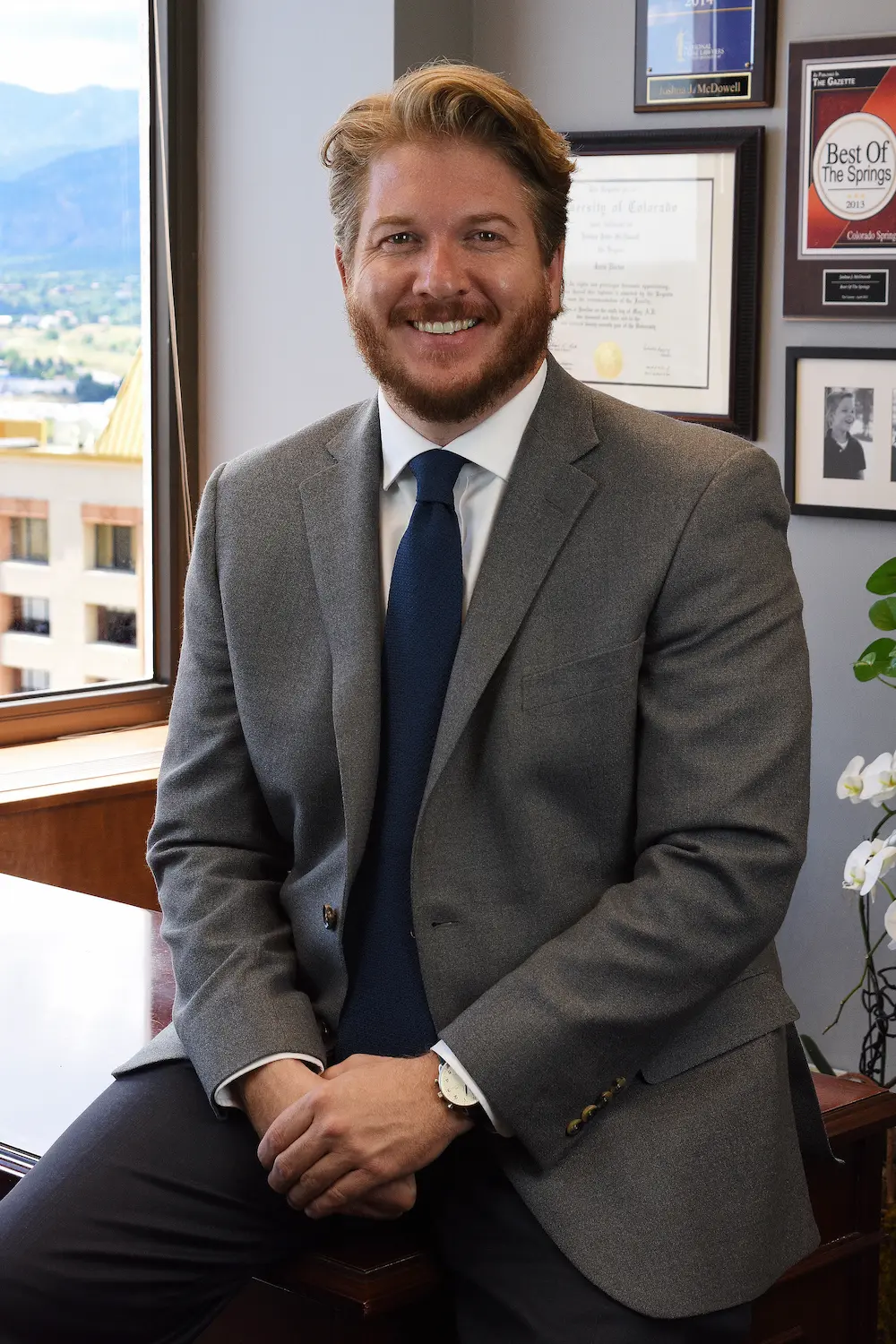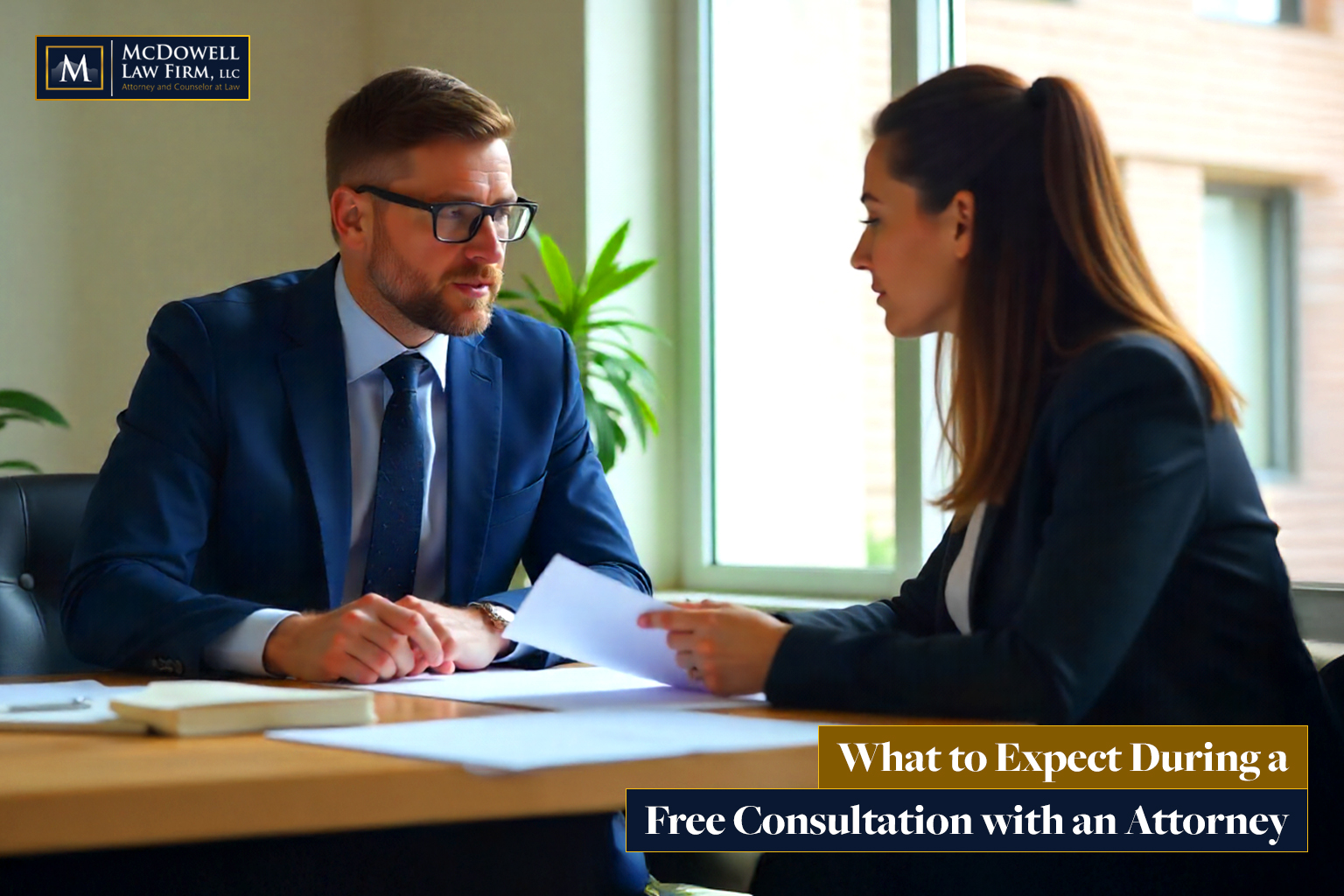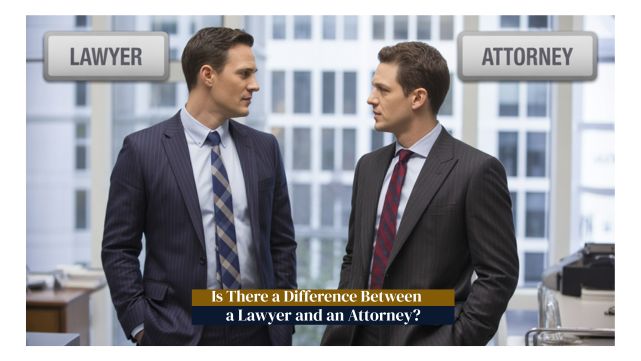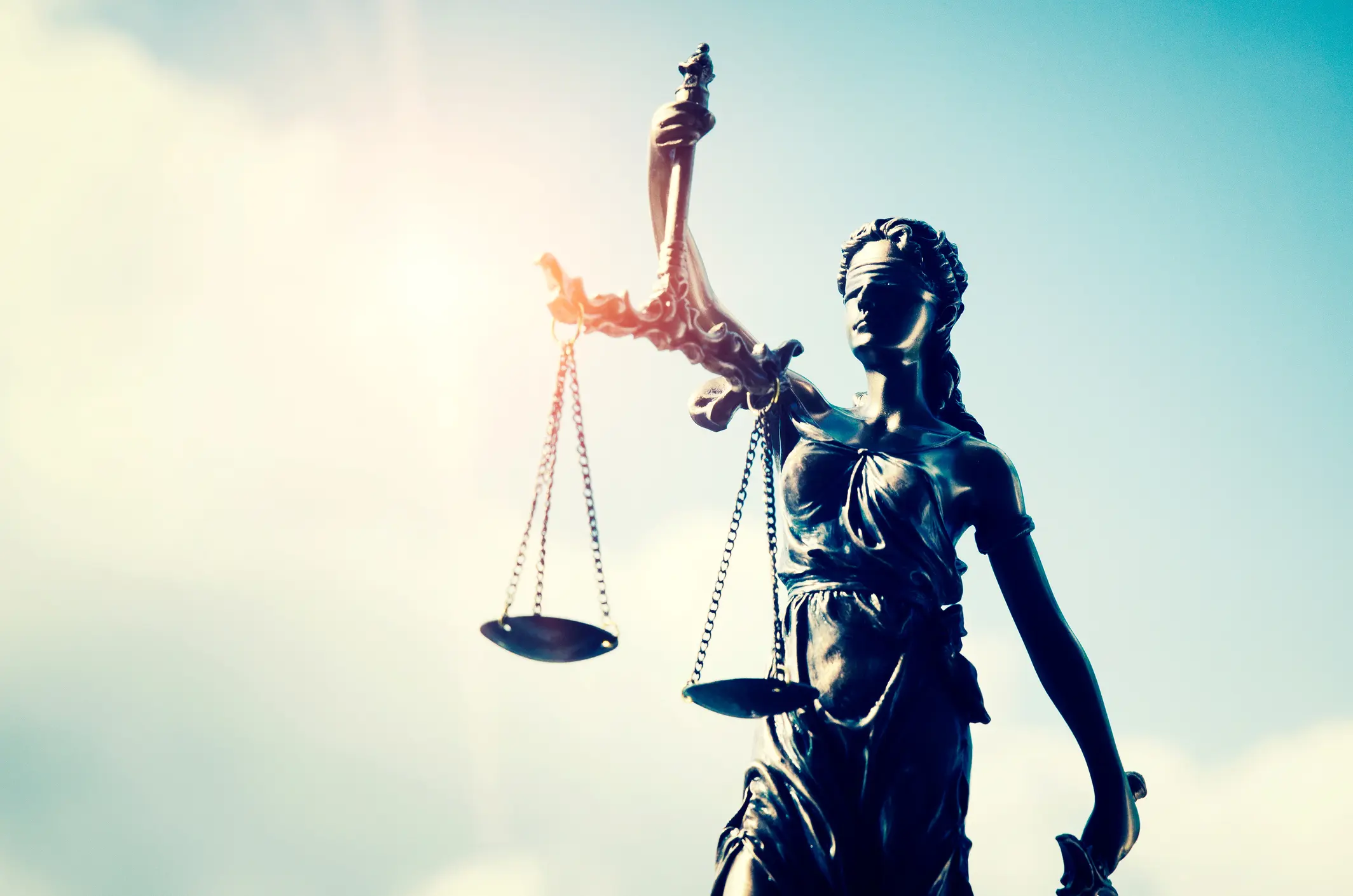One of the first and most important steps you can take is to meet with an attorney for a consultation. Many law firms, including McDowell Law Firm in Colorado Springs, offer free initial consultations so potential clients can better understand their options before committing to representation.
We offer free of charge, no obligation consultations that can be done in a variety of ways. We offer
- Zoom consultation
- In-person
- Over the Phone
Our goal is to make good use of your time and ours. If you’d like to come visit us in person in beautiful downtown Colorado Springs, we’re located at 2 N. Cascade Ave, suite #1220. That’s the twelfth floor of the 1st Bank Building at the corner of Pikes Peak and Cascade.
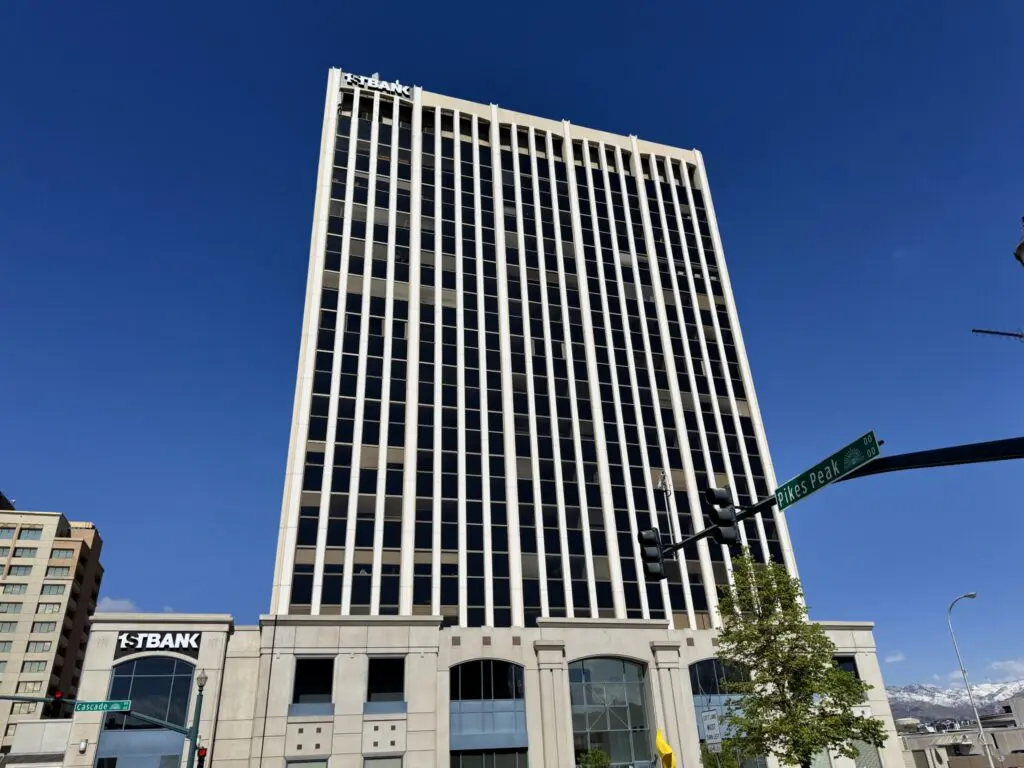
We validate parking if you’d like to park in our garage during your consultation.
There’s also plenty of street parking on both Pikes Peak and Cascade Ave. We’re located two blocks from both El Paso County Courts and the Colorado Springs Municipal Courthouse. The Federal Court (U.S. District Courthouse) is located just a few more blocks away.
A free consultation isn’t just a meet-and-greet—it’s a focused conversation that can help you make an informed decision about your case and your choice of lawyer. Here’s what you can expect from the process, and how to make the most of our meeting.
1. The Purpose of the Consultation
The goal of a free consultation is twofold:
- For you: to understand your legal situation, your potential options, and whether the attorney is the right fit for you.
- For the attorney: to evaluate the facts of your case, identify possible strategies, and determine if they can represent you effectively.
Think of it as a two-way interview—you’re assessing the lawyer’s skill, communication style, approach, and fit. We want you to feel comfortable with us. In many cases, you’re trusting us with your freedom and your future.
From our perspective, we’re assessing your case’s merits and complexity and already forming an approach.
2. How to Prepare Beforehand
You’ll get the most value from a consultation if you prepare in advance:
- Gather documents: Bring any police reports, court notices, contracts, correspondence, or other paperwork related to your legal issue.
- Write a timeline: Summarize the key events in chronological order. This helps the attorney quickly understand the context.
- List your questions: Include questions about your case, possible outcomes, the attorney’s experience, and fees if you decide to hire them.
Preparation shows you’re serious about your case and ensures the consultation time is used effectively.
3. The Initial Conversation
Expect to spend the first part of the meeting explaining your situation. The attorney will likely:
- Ask for background details
- Clarify timelines and key events
- Request relevant documents
- Identify any urgent legal deadlines
It’s important to be honest, even about facts that may seem unfavorable. Attorneys can only give accurate advice if they know the full story.
4. The Attorney’s Assessment
After hearing your side, the attorney will typically provide:
- A preliminary legal analysis: They may outline the laws that apply to your situation and any legal hurdles you might face.
- Possible strategies: This might include filing motions, negotiating settlements, or preparing for trial.
- Potential outcomes: While no attorney can guarantee results, they can discuss best-case, worst-case, and most likely scenarios.
Keep in mind, this initial assessment is based on the information you’ve provided and may evolve as the attorney gathers more facts.
5. Discussion of Fees and Representation
Even though the consultation is free, the attorney will explain what their fees will be if you decide to hire them. In criminal defense cases, this is often a flat fee. In civil cases, the attorney might charge hourly rates or work on contingency (common in personal injury matters).
You should also ask about:
- Payment plans or retainer requirements
- What’s included in the fee (e.g., trial representation, motions, investigation)
- Additional costs, such as court filing fees or expert witnesses
6. Your Opportunity to Evaluate the Attorney
While the attorney is evaluating your case, you should be evaluating them:
- Do they explain things clearly?
- Do they seem knowledgeable and confident?
- Do they listen without interrupting?
- Do you feel comfortable sharing sensitive information with them?
Your attorney will be your advocate, so trust and communication are critical.
7. Next Steps After the Consultation
At the end of the consultation, you may:
- Decide to hire the attorney immediately
- Take time to compare other attorneys before making a decision
- Decide not to move forward with your case
If you hire the attorney, you’ll likely sign a representation agreement, make an initial payment, and begin working on your case right away.
Making the Most of Your Free Consultation
A free consultation is more than a courtesy—it’s your chance to get clarity, explore your options, and start building a strategy to protect your rights. Whether you’re dealing with criminal charges, a civil dispute, or another legal matter, going in prepared will help you get the most from the meeting.
At McDowell Law Firm in Colorado Springs, we take the time to listen, explain, and guide you through the next steps. Our goal is to ensure you leave your consultation feeling informed, supported, and ready to move forward.
Frequently Asked Questions
Is everything I say in a free consultation confidential?
Yes. Even if you don’t hire the attorney, your discussion is protected by attorney-client confidentiality.
Do I have to bring documents to the consultation?
It’s not required, but it will help the attorney give more accurate and specific advice.
How long does a consultation usually last?
Most free consultations last between 30 minutes and an hour, depending on the complexity of your case.
Can the attorney give me exact odds of winning?
No ethical attorney will guarantee results, but they can give you an informed assessment based on the facts and applicable law. “Winning” can mean very different things depending on your type of case. In every criminal case, the best result is a full dismissal and sealing of the case. Or a “not guilty” verdict, if the case goes to trial. However, if the evidence against you is very strong, a favorable plea deal may be considered a great result. As with every criminal matter, each case is unique, and you should discuss expectations with your attorney.
If you’re ready to discuss your case with an experienced Colorado Springs attorney, contact McDowell Law Firm today to schedule your free consultation.
